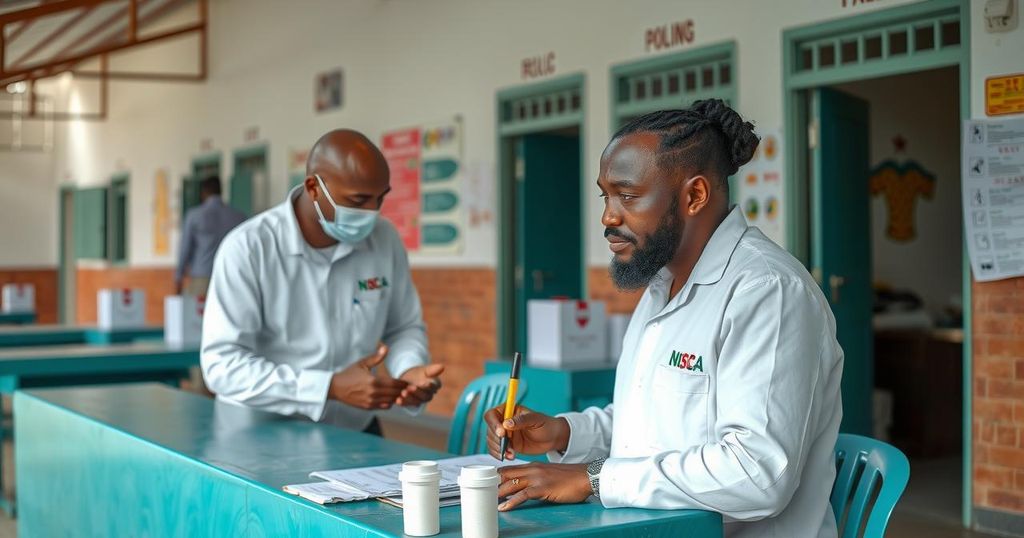Voters in Comoros are electing members for a 33-seat parliament, a year after President Azali Assoumani’s contested re-election. Approximately 338,000 citizens are registered to vote, amidst concerns over Assoumani’s authoritarian rule and succession plans for his son. Some opposition parties are calling for a boycott, while others encourage participation to reveal flaws in the regime. Results are anticipated by Friday.
Voters in Comoros are participating in parliamentary elections for the archipelago’s 33-seat legislature, following last year’s contentious re-election of President Azali Assoumani, which the opposition claims was tainted by significant irregularities. Despite these allegations, officials from the ruling party refute any claims of malpractice. Polling began early on Sunday, with approximately 338,000 registered voters casting their ballots. The last parliamentary elections were conducted in January 2020, and nearly 100 candidates have been approved by the Supreme Court to vie for a seat in the new parliament. Assoumani’s governance, which began in 1999 after a coup, has faced criticism for authoritarian tendencies, with opponents speculating that he is grooming his eldest son, Nour El-Fath, for succession after his current term concludes in 2029. In 2024, Assoumani granted his son extensive powers to oversee governmental coordination. While some opposition factions, particularly the Juwa party led by former President Ahmed Abdallah Sambi, who received a life sentence in 2022, advocate for a boycott, others argue that participation will highlight the weaknesses of the current regime. “The Azali regime is weakened… by participating in these elections we are contributing to further exposing the flaws in its system and accelerating its inevitable fall,” remarked Hamidou Karihila, a candidate from the opposition Hope of the Comoros party. Election results are anticipated by Friday.
Comoros is an Indian Ocean archipelago with a turbulent political history characterized by coups and contested elections. President Azali Assoumani, who seized power in 1999, has been a dominant figure in Comorian politics, securing three electoral victories amidst accusations of authoritarianism. The recent elections are significant as they follow allegations of irregularities in the previous presidential election and concerns regarding Assoumani’s potential legacy and the future political landscape, particularly regarding the role of his son, Nour El-Fath.
In summary, the parliamentary elections in Comoros are set against a backdrop of political tension and allegations of irregularities. While significant participation from voters is expected, the division among opposition parties regarding the necessity of participation reflects the complex political landscape. The forthcoming results will undoubtedly impact the direction of governance in Comoros and the ongoing discourse surrounding Assoumani’s leadership.
Original Source: www.naroomanewsonline.com.au






